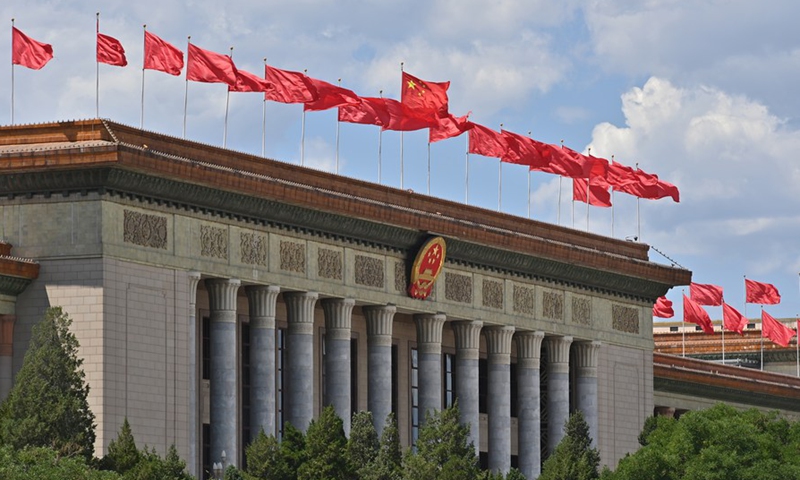China to deepen multilateral, bilateral, and regional economic cooperation: Govt Work Report

Two Sessions Photo:Xinhua
China will deepen multilateral, bilateral, and regional economic cooperation in 2021, and continue to uphold the multilateral trading regime, pursuing a high-standard opening-up and promoting stable and improved performance in foreign trade and investment, according to the government work report that Chinese Premier Li Keqiang delivered on behalf of the State Council to China's top legislature for deliberation on Friday.China will work for the early entry into force and implementation of the Regional Comprehensive Economic Partnership Agreement and the signing of the China-EU Comprehensive Agreement on Investment.
It will accelerate the free trade negotiations with Japan and South Korea, and actively consider joining the Comprehensive and Progressive Agreement for Trans-Pacific Partnership. On the basis of equality and mutual respect, China will promote the growth of mutually beneficial China-US business relations.
To promote high-quality Belt and Road cooperation this year, China will set up a sound, diversified investment and financing framework, and work to steadily advance cooperation on major projects and promote infrastructure connectivity in this area.
Moreover, China will promote steady growth of imports and exports, and use foreign investment more effectively, Li said.
The measures include increasing credit support to small and medium foreign trade firms, improving and adjusting import tariff policies and increase imports of quality products and services, exploring new approaches to develop trade in service, ensuring smooth international logistics services, and further simplifying customs clearance.
Good preparations will also be made for holding major trade events such as the China International Import Expo, the China Import and Export Fair, and the China International Fair for Trade in Services.
The negative list for foreign investment will be further cut, and a negative list for cross-border trade in services will be formulated, Li noted.
China will further develop the Hainan Free Trade Port, pursue reform, opening up, and innovation in pilot free trade zones.
"China will promote fair competition between domestic and foreign companies and protect the lawful rights and interests of foreign-invested enterprises," Li said, noting foreign investors are welcome to expand their investments in China and share in its vast open market and development opportunities.
In a bid to better protect the interests of foreign investors in the country, China launched its foreign investment law starting on January 1 of 2020. With the law, foreign-invested enterprises are granted access to government procurement markets through fair competition. It also bans using administrative licensing and penalties to force foreign investors and firms to transfer technology, and entitles foreign companies equal participation as their domestically-invested peers in the formulation and revision of national, industrial and local standards in accordance with the law.
On October 1, a new complaint handling mechanism took effect in China, which allows foreign business chambers and associations to report issues related to the investment environment to Chinese authorities.


